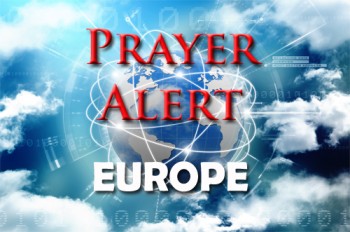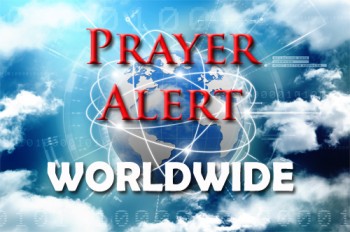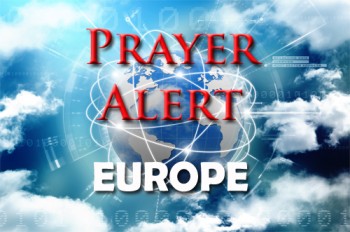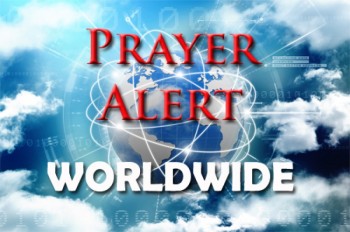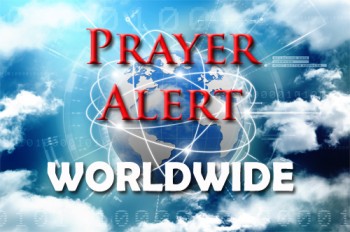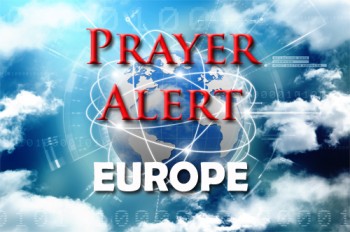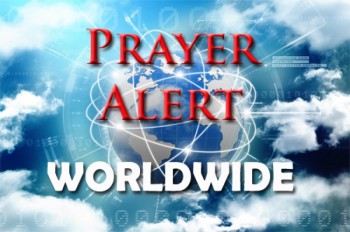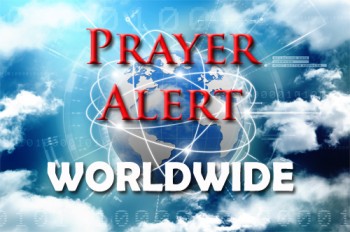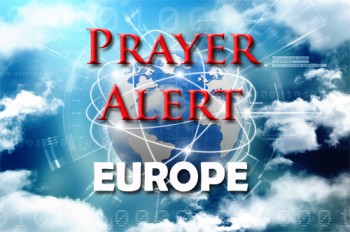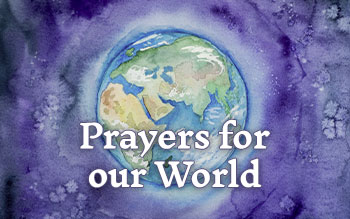Displaying items by tag: Corruption
France: Macron ally corruption probe
The National Assembly president Richard Ferrand, a close ally of President Macron, was put under formal investigation in a financial impropriety case. In a statement on 12 September the assembly said that Ferrand, who denies any wrongdoing, would defend himself and was confident the case would be dropped. The previous day he was questioned at length by investigating judges. The situation is an embarrassment for Macron, and could bring renewed scrutiny to his promise to clean up French politics. Under French law, being put under formal investigation means there is ‘serious or consistent evidence’ that points to probable involvement in a crime. Ferrand was investigated for fraud before, and at that time he resigned as a minister. The latest probe relates, like the previous one, to his management of a health insurance company in Brittany.
Africa: protecting wildlife and timber
Ending the illegal timber trade in Africa should be the first order of business at the G7 summit (see the article in Europe section). There is no wildlife sustainability when timber traffickers and their powerful backers get away with their crimes. Gambia, Madagascar and Senegal all have new governments, who must take steps against impunity for illegal timber trading. Before any new trade proposals can move forward, these countries must start holding perpetrators of past crimes to account. In the Gambia, US$325 million worth of illegal timber went through its ports from 2010 to 2016. Its former president took advantage of poverty and instability at the border to gain control of the illegal rosewood trade from neighbouring Senegal.
Russia: protests challenge Putin’s dominance
President Putin’s heavy-handed politics ahead of September elections have caused street protests for weeks. Russians are airing an array of grievances over economic stagnation and the Kremlin’s geopolitical isolation. Putin has turned Russia into a powerhouse to be reckoned with for foreign policy makers, but living standards have fallen five years in a row. The 50,000 protesters who converged a mile from the Kremlin recently proved that a movement that started with protests over candidates being refused to register for municipal elections has turned into a platform for a wide swathe of political concerns - local and national. Average Russians are experiencing poverty, consumer borrowing has increased almost 50%, and food chains have introduced consumer loans for shoppers, allowing families to put food on the table. Putin’s popularity is low, and social media have shown images of police beating generally peaceful protesters and detaining 2,000+ demonstrators. See
South Africa: Johannesburg riot
Foreign street vendors have clashed with Johannesburg police attempting to seize counterfeit goods. An armed police vehicle was pelted with stones and rubbish bins by street vendors accusing the police of terrorising them after the raid turned into violence and petrol bombing. The police retaliated by firing rubber bullets to disperse the protesters. The African Council of Hawkers and Informal Business condemns the brutality against Hawkers by the Johannesburg Metro Police and South African Police Service. SABC News reported, ‘the police were not attacking but trying to evict the illegal vendors from a congested area in town’. The ANC condemns stoning, petrol bombing and attacks on police by foreign nationals. Police are continuing with raids to remove counterfeit goods in Johannesburg and across the country. South Africa is complex. Locals resent migrant street traders, many sell contraband / fake / illegally imported goods. Many distrust corrupt authorities and there is high unemployment. Disputes quickly escalate into a riot.
South America: nations with high crime rates
Brazil, Colombia, El Salvador, Honduras, Mexico, Puerto Rico, and Venezuela have colossal crime rates which undermine growth, threaten human welfare, and impede social development, according to the UN and World Bank. The region registers 40% of the world’s murders despite having only 9% of the global population. One in four Latin Americans was assaulted and robbed in 2018. Wealthy Brazilians have to provide their own security. Pray for the church and the police to bring security and peace to Brazil’s vulnerable population. Massive street marches in Argentina, Mexico, and Brazil protesting against violence have made it difficult for politicians to avoid dealing with the issue and, in many countries, tackling crime is a central theme in political party platforms across the region. Pray for God to raise up strong, wise men and women with God’s anointing to lead the countries back to His purposes.
EU: free ports and money-laundering
The European Commission has said that free ports, the Singapore-style tax-free zones favoured by Boris Johnson, are ‘potentially vulnerable to money-laundering and financing terrorism’ in the European single market. Free ports are ‘the new emerging threat’, said the European justice commissioner, Věra Jourová. ‘This is something we want to focus on more.’ Prime Minister Johnson says he wants ‘about six’ tax-free zones in ports as part of his vision for the UK after Brexit. He has yet to give details on their size and location. EU countries and their dependencies already shelter 80+ free ports, including one on the Isle of Man, a British crown dependency which is neither in the EU nor the UK. The commission’s report warned that the EU has ‘a structural problem’ in preventing the financial system from being used by criminals.
Mongolia: corruption and Christianity
In March Parliament made it possible for judges, prosecutors and others to be fired by the National Security Council. Since then the head of the Supreme Court, the director and deputy director of the anti-corruption agency, and the chief prosecutor and his deputy have all been sacked. Last week, 17 judges were removed from their posts. However there are still more corruption allegations swirling around dozens of members of Parliament. Eventhe president is implicated in a scandal from his time as head of the Transport Ministry. Mongolia as a Christian mission field is full of promise. From the capital city of Ulaanbaatar, the gospel is gaining momentum and reaching across rural areas. Churches welcome missionaries wanting to evangelise while meeting practical needs. Mongolian officials have expressed their desire for ‘foreign experts’ to help with pressing social problems, provide training for information technology and giving young people a safe environment. See
Global: post-G20 foreign bribery unchecked
China, Mexico and Russia are just some of the countries represented at this year’s G20 summit which are failing to enforce their laws and promises against corruption, and in particular foreign bribery. International bribery is one of the many ways in which corruption heavily impacts sustainable development and economic growth. It hinders fair access to markets as well as progress on today’s most pressing issues like education, healthcare, gender equality and the climate crisis. To make economic development work for all, anti-corruption should be mainstreamed into every decision and policy. G20 governments must enable clean contracting provisions, publish open registers of beneficial owners of companies, and create strong whistle-blower protection. G20 leaders must focus on implementing their commitments and not feel tempted just to keep making more promises.
Russian journalist falsely accused
Moscow police had detained Ivan Golunov, an anti-corruption journalist, for alleged drug offences. However, they had to drop charges against him after his arrest caused displays of support from other Russian journalists and cultural figures, 25,000 people expressing their disgust on Facebook, and a threatened protest march. Police involved in the case were removed from duty pending investigations, and President Vladimir Putin will be asked to dismiss more senior personnel. The Kremlin admitted that ‘mistakes had possibly been made’. Forensic tests did not detect Ivan’s fingerprints on the drugs purportedly seized from his home, neither was there any trace of drugs in his urine or on his fingers. Photographs supposedly showing a drug lab at his flat were later deleted after a policeman admitted they were taken at a different location and bore no relation to the journalist. Human rights groups said police in Russia often plant drugs on suspects.
EU Warns Romania Of Legal Steps Over Moves To Weaken Rule Of Law
The European Commission has threatened it will take legal action against Romania unless it reverses moves to cripple the independence of its courts and hinder the fight against corruption.
The commission, which is the European Union's executive body, has repeatedly warned that measures adopted by the ruling Social Democrats -- including moves to reduce statutes of limitation that would close some ongoing corruption trials -- are reversing years of anticorruption reforms and weakening the rule of law.
Spokesman Margaritis Schinas told a news briefing in Brussels on May 13 that Commission First Vice President Frans Timmermans had sent a warning letter to Romania's government on May 10.
"The main concerns relate to developments interfering with judicial independence and the effective fight against corruption, including the protection of financial interests of the EU and particularly to the recently adopted amendments to the Criminal Code that create a de facto impunity for crimes," Schinas said.
"Possible legislation to allow extraordinary appeals would further aggravate the rule-of-law situation," he added.
The commission has already put Hungary and Poland under a special "rule of law" framework over steps to tighten state control over the courts, media, academic institutions, and advocacy groups. This could theoretically lead to the eventual activation of the EU's Article 7 -- the so-called "nuclear option" -- resulting in a suspension of their voting rights in the EU.
Schinas said similar action would be taken against Romania unless it addressed the EU's concerns.
Schinas also signaled that Romania's becoming a member of the EU's passport-free Schengen travel area -- for which Bucharest has been pushing for years -- might not happen if the government ignored the rule-of-law concerns.
A senior EU diplomat, speaking to Reuters on condition of anonymity, said penalties could include loss of EU funds.
"The Romanian coalition government is systematically undermining the rule of law for the sole purpose of saving corrupt political leaders from prison," the diplomat said.
"If Bucharest continues on this dangerous path, taking part in the Schengen travel-free area will remain a pipe dream.
"Infringement of the rule of law will endanger the distribution of more than 30 billion euros [$33.7 billion] in cohesion funds earmarked for Romania in the draft EU budget for the years following 2021," the diplomat told Reuters.
Pray: That the integrity of the Romanian judicial system will be maintained.
Pray: That proposed legislation that undermines the rule of law will be overturned.
With reporting by Reuters, AFP, and RFE/RL's Romanian Service
